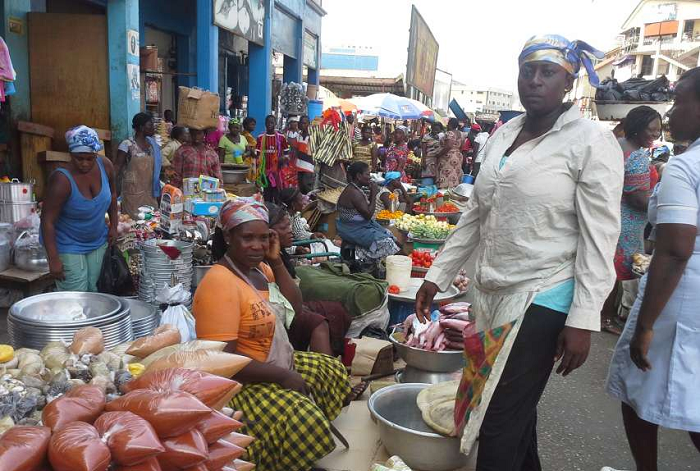Prices of the country’s major commodity exports firmed up in the week ending August 31 on the back of declines in supplies and a weakened US currency.
Crude oil finished higher on supply cut commitment by major producers and shut downs in refineries in the US.
Brent crude oil, thus, made a weekly gain of 62 cents to trade at $52.66 per barrel.
Gold also ended with a weekly gain of 1.83 per cent as mixed economic data from the US affected the dollar, shifting investor’s interest to the safe haven commodity.
The precious metal was, thus, selling at $ 1,321.65 on August 31.
Ivory Coast’s favourable climatic conditions encouraged a sell-off of cocoa on the international market. The price of cocoa, which witnessed consecutive declines in the week, managed to gain US$17 to trade at $1,927.50 per ton.
Price of coffee, however, recorded a weekly loss of 5.79 per cent in spite of measures by the Vietnam government to cut down supply on the international commodities market.
The fall was due to fundamental weakness in the market for the soft crop. It, thus, traded at US$1.29 per pound.
Treasury securities
At the close of the week’s auction, the 91-Day T-Bill eased by a basis point to settle at 13.20 per cent. Yield on the 182-Day T-Bill also increased by 14 basis points to get 14.07 per cent.
All other treasury securities maintained their respective rates.
Of the GH¢1.06 billion bids presented by investors, a total of GH¢1 billion worth of bids were accepted by the government.
The week’s target of GH¢1.09 billion was marginally missed.
The government, however, seeks to raise GH¢658 million worth of the 91-Day and 182-Day T-Bills at this week’s auction.
Some GH¢200 million is also anticipated to be raised from the sale of the two-year fixed note.
{loadmodule mod_banners,Nativead1}
Stock Exchange bullish
With all trading sessions ending on a positive note due to rising investors’ appetite for high yielding stocks, the Ghana Stock Exchange (GSE) sustained its bullish outlook in the holiday-shortened week.
At the close of trading, the benchmark-GSE Composite Index rose by 4.56 per cent to 2,389.01 points, reflecting a year-to-date return of 41.44 per cent.
The GSE Financial Stock Index also increased by 4.46 per cent to 2,201.52 points, corresponding to a year-to-date return of 42.46 per cent. The bullish run is expected to be sustained in the near term on the back drop of the current paradigm shift in interest from the money market to the capital market.
At the end of trading, a total volume of 2.77 million shares valued at GH¢5.9 million were traded by 21 equities.
This represents 23.56 per cent decline in volume terms from previous week’s total traded volume.
At the close of market activities, liquidity on the exchange was mainly driven by CAL Bank Ltd and Enterprise Group Ltd; they accounted for 56.59 per cent of the total traded volume.
In value terms, Enterprise Group Ltd, was the largest contributor for the week, accounting for 44.45 per cent of the total value.
Market capitalisation, however, upticked by 0.51 per cent to settle at GH¢ 58.06 billion
Price movement
In all, nine equities recorded price changes with seven advancers and two laggards.
Fan Milk Ltd led the advancers with a 99 pesewas gain to close at GH¢18 per share.
Enterprise Group Ltd followed closely with 87 pesewas gain to trade at GH¢5.05 per share.
HFC Bank Ltd increased by 20 pesewas to settle at GH¢1.20 per share. Share prices in Unilever Ghana Ltd and Total Petroleum Ltd rose by five pesewas each to trade at GH¢9.11 and GH¢2.3 per share respectively. Benso Oil Palm Plantation Ltd and Guinness Ghana Brewery Ltd also advanced two pesewas and a pesewa to close at GH¢5.32 and GH¢1.47 per share respectively.
On the downside, Standard Chartered Bank Ltd lost two pesewas to trade at GH¢2.31 per share whereas Ghana Oil Company Ltd also tumbled by a pesewa to trade at GH¢2.31 per share.
Currency markets
The US dollar advanced against the local currency, gaining 0.02 per cent to trade at GH¢4.4. The year-to-date depreciation of the cedi stood at 4.74 per cent.
The Euro was on the defensive against its rival on the international currency market.
The cedi, thus, lost 0.08 per cent in the trading week at GH¢5.22 per euro, reflecting a year-to-date depreciation of 17.69 per cent.
Mixed data from the UK had little effect on the pound sterling as uncertainties rising from the second-phase of the Brexit negotiation dimmed growth prospects in the UK.
The cedi benefited from this ill sentiment to appreciate by 0.06 per cent to trade at GH¢5.66 per pound. The year-to-date depreciation reduced to 8.98 per cent.
Source—IGS Financial Services/GB
